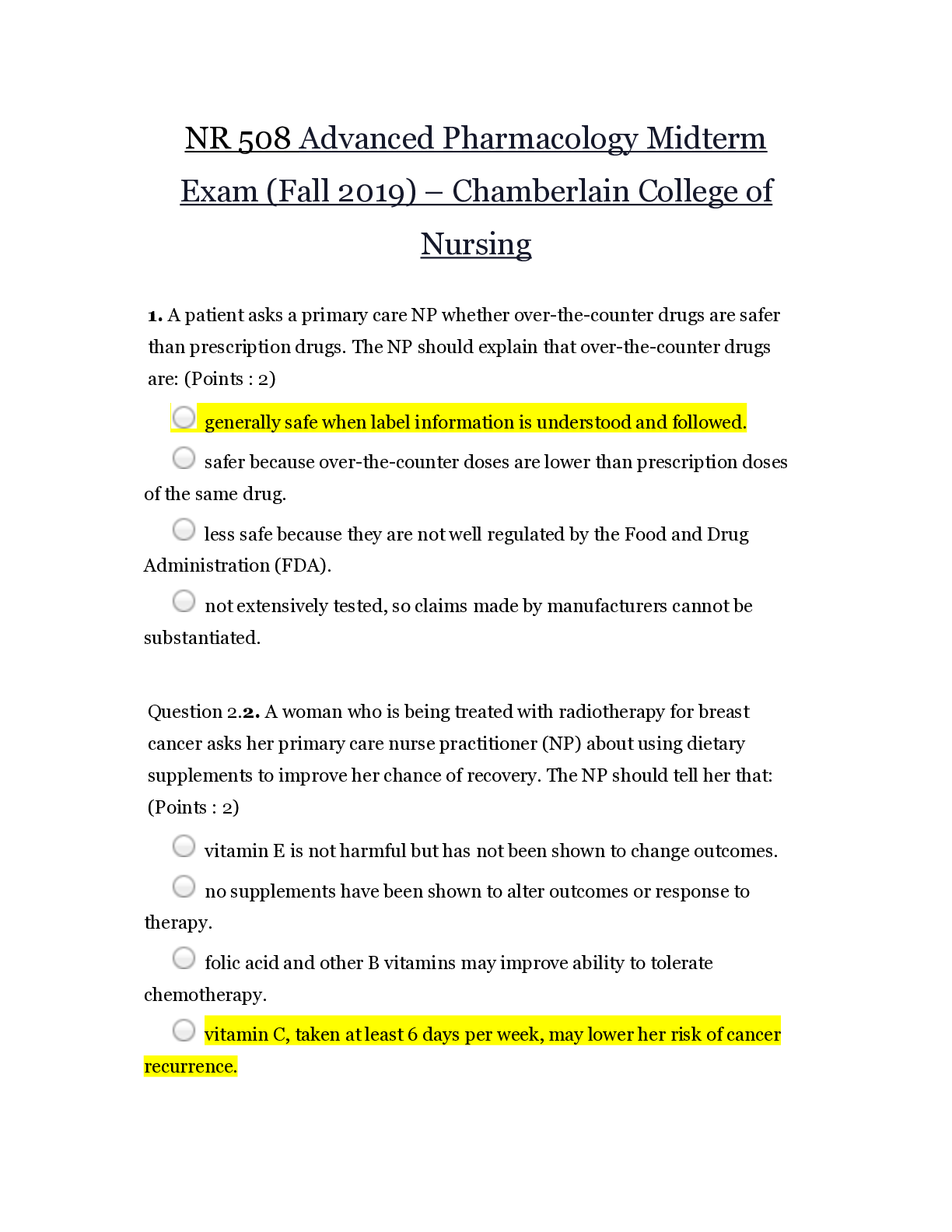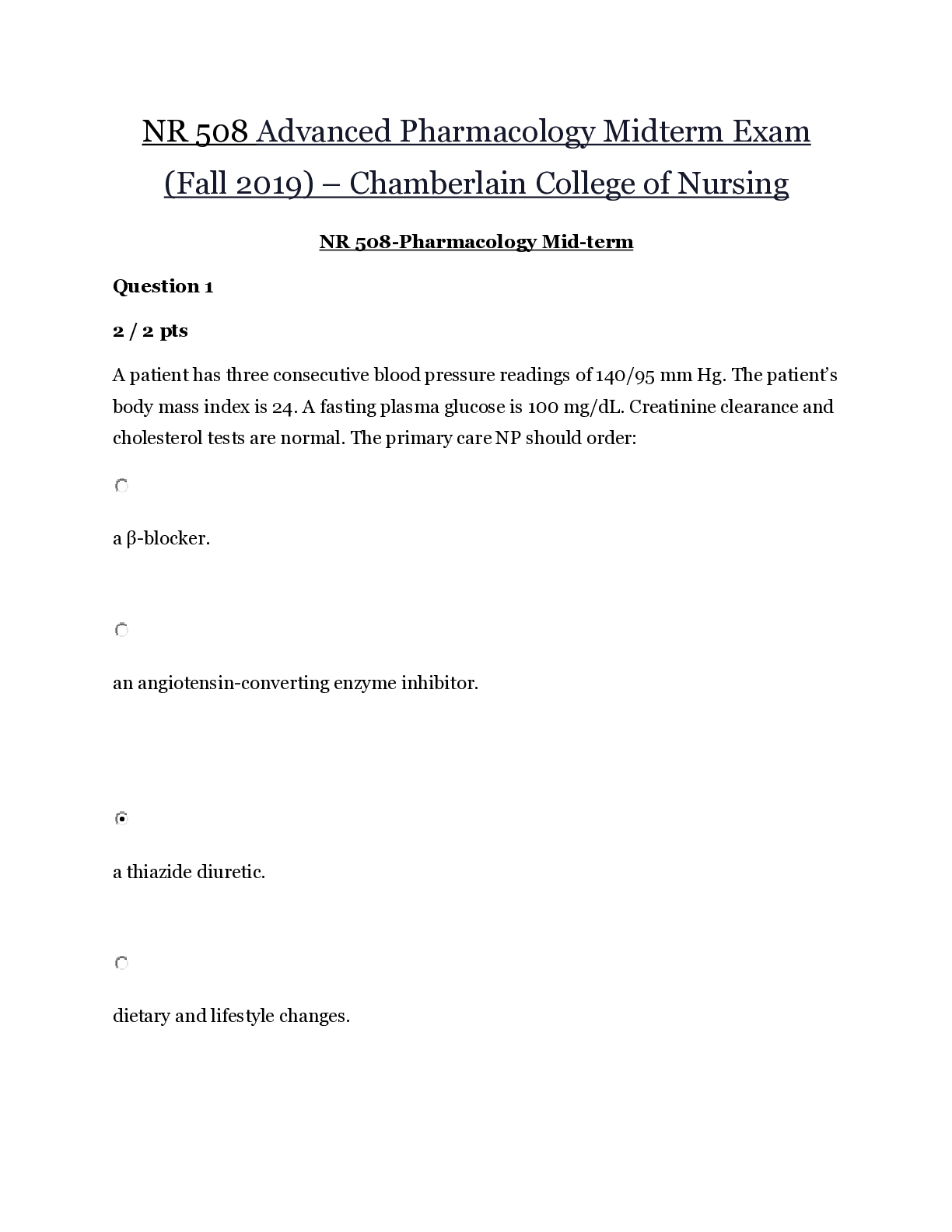NR 508 PATHO FINAL EXAM / NR508 PATHO FINAL EXAM, LATEST 2020. A GRADED
Document Content and Description Below
1. Question : Which organism is responsible for the development of syphilis? Student Answer: Neisseria syphilis Treponema pallidum Haemophilus ducreyi Chlamydia trac... homatis Instructor Explanation: T. pallidum is the only cause of syphilis. Points Received: 2 of 2 Comments: Question 2. Question : Kidney stones in the upper part of the ureter would produce pain referred to which anatomical area? Student Answer: Vulva or penis Umbilicus Thighs Lower abdomen Instructor Explanation: Kidney stones in the upper part of the ureter would produce pain in the umbilicus. Sensory innervation for the upper part of the ureter arises from the tenth thoracic nerve roots with referred pain to the umbilicus. The other options would not experience such referred pain. Points Received: 2 of 2 Comments: Question 3. Question : Carcinoma refers to abnormal cell proliferation originating from which tissue origin? Student Answer: Blood vessels Epithelial cells Connective tissue Glandular tissue Instructor Explanation: Only cancers arising from epithelial cells are called carcinomas. Points Received: 2 of 2 Comments: Question 4. Question : Which immunoglobulin is present in blood, saliva, breast milk, and respiratory secretions? Student Answer: IgA IgE IgG IgM Instructor Explanation: IgA can be divided into two subclasses, IgA1 and IgA2. IgA1 molecules are predominantly found in the blood, whereas IgA2 is the predominant class of antibody found in normal body secretions. The other options are not found in the substances identified in the question. Points Received: 2 of 2 Comments: Question 5. Question : What period follows depolarization of the myocardium and represents a period during which no new cardiac potential can be propagated? Student Answer: Refractory Hyperpolarization Threshold Sinoatrial (SA) Instructor Explanation: During the refractory period, no new cardiac action potential can be initiated by a stimulus. This selection is the only option that accurately identifies the period described in the question. Points Received: 2 of 2 Comments: Question 6. Question : Stress-induced norepinephrine results in: Student Answer: Pupil constriction Peripheral vasoconstriction Increased sweat gland secretions Decreased blood pressure Instructor Explanation: During stress, norepinephrine raises blood pressure by constricting peripheral vessels; it dilates the pupils of the eye, causes piloerection, and increases sweat gland action in the armpits and palms. Points Received: 2 of 2 Comments: Question 7. Question : What is the suggested mean blood pressure for an 8- to 9-year-old child? Student Answer: 104/55 mm Hg 106/58 mm Hg 112/62 mm Hg 121/70 mm Hg Instructor Explanation: The suggested mean blood pressure for an 8- to 9- year-old child is 106/58 mm Hg. For a child of 6 to 7 years old, 104/55 mm Hg is appropriate; for a 12- to 13-year-old child, 112/62 mm Hg is appropriate, and for a 16- to 18-year-old young man, 121/70 mm Hg is appropriate. Points Received: 2 of 2 Comments: [Show More]
Last updated: 2 years ago
Preview 1 out of 19 pages
.png)
Buy this document to get the full access instantly
Instant Download Access after purchase
Buy NowInstant download
We Accept:

Reviews( 0 )
$15.00
Can't find what you want? Try our AI powered Search
Document information
Connected school, study & course
About the document
Uploaded On
Nov 16, 2020
Number of pages
19
Written in
Additional information
This document has been written for:
Uploaded
Nov 16, 2020
Downloads
0
Views
101


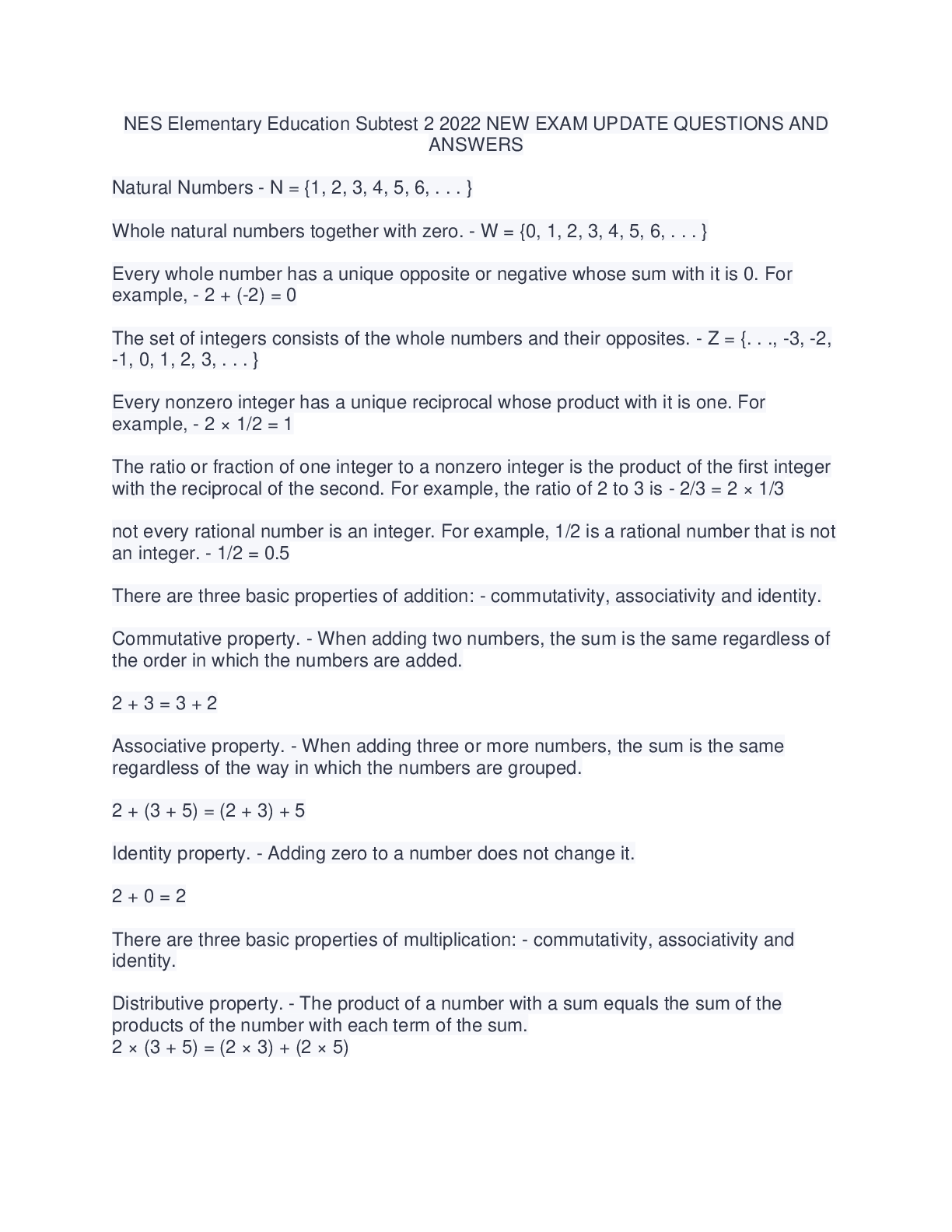
.png)

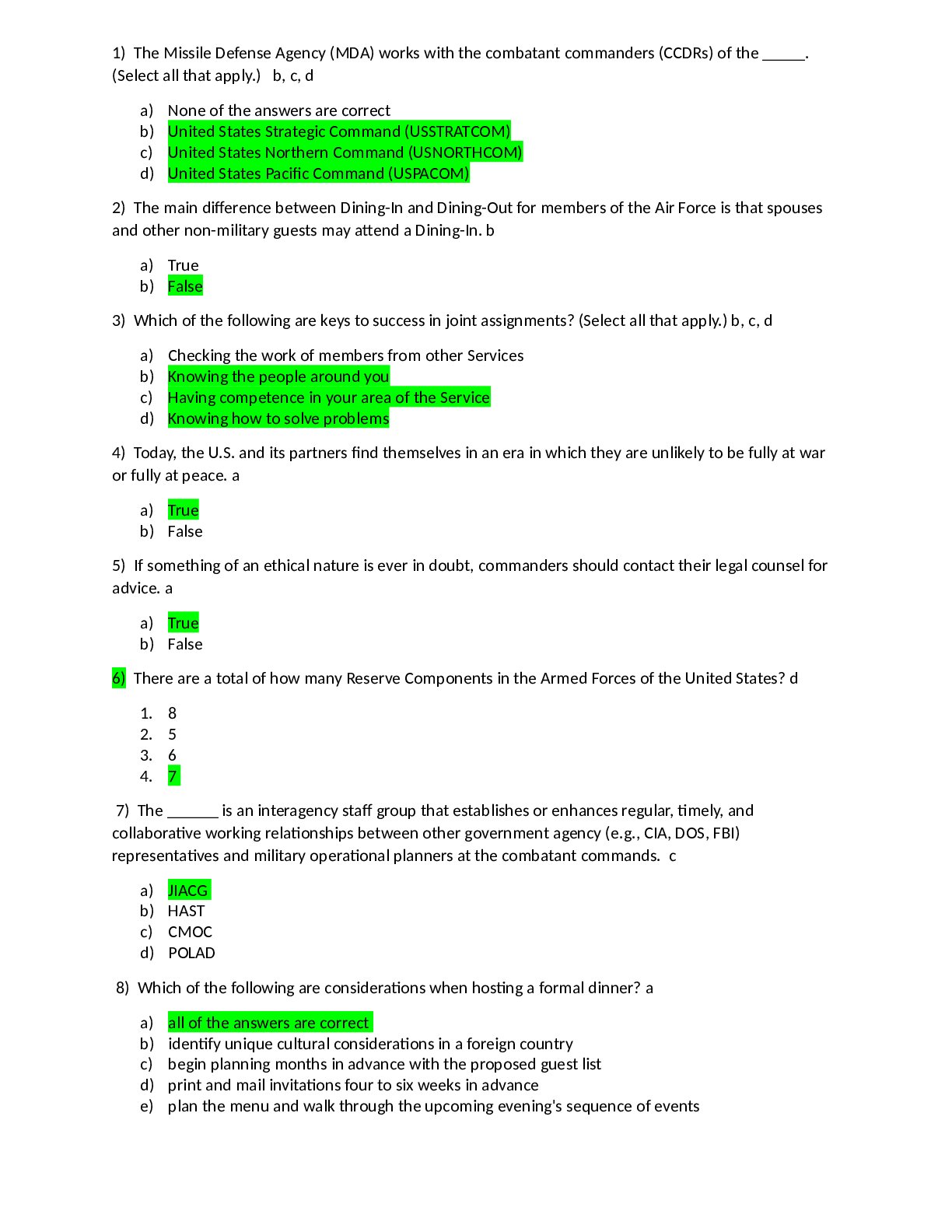
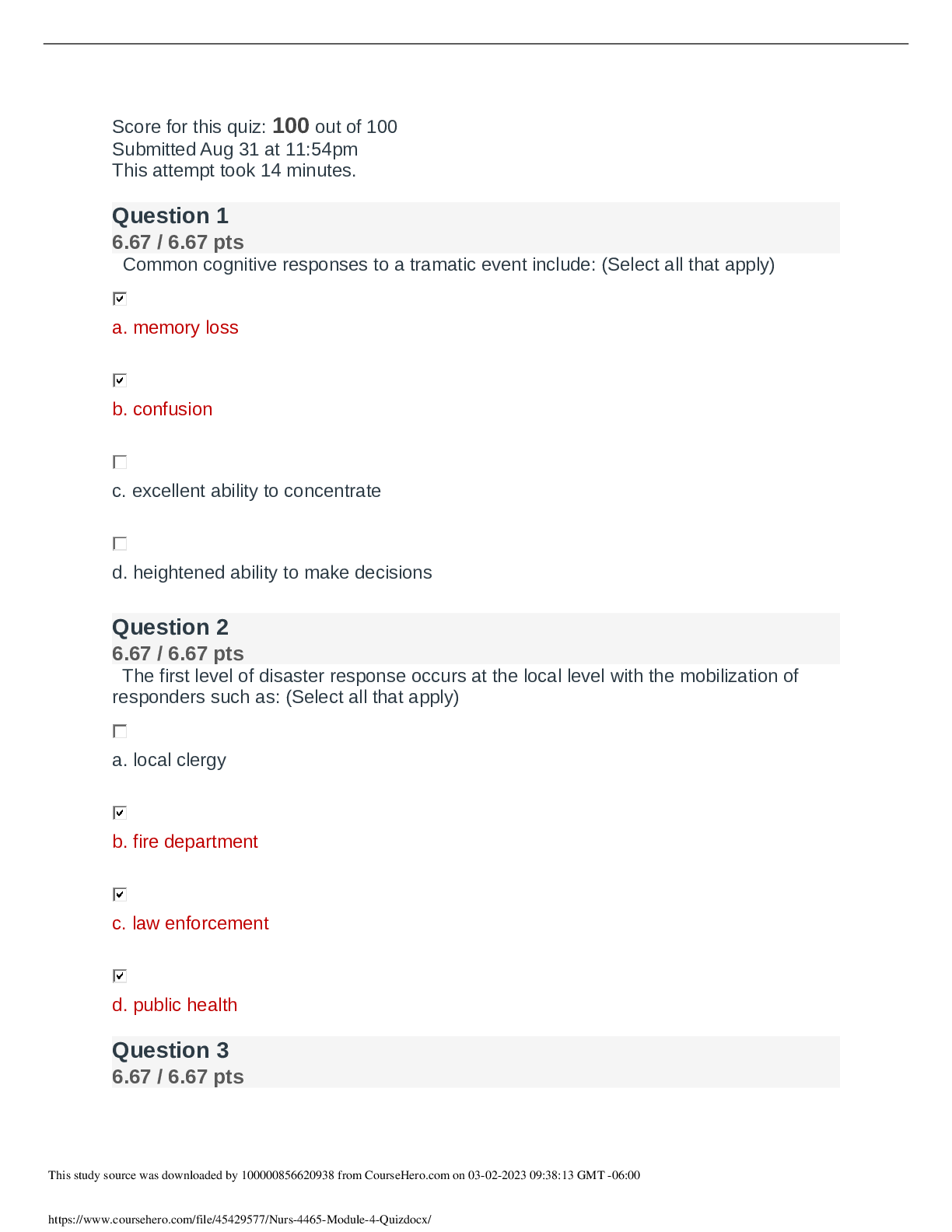
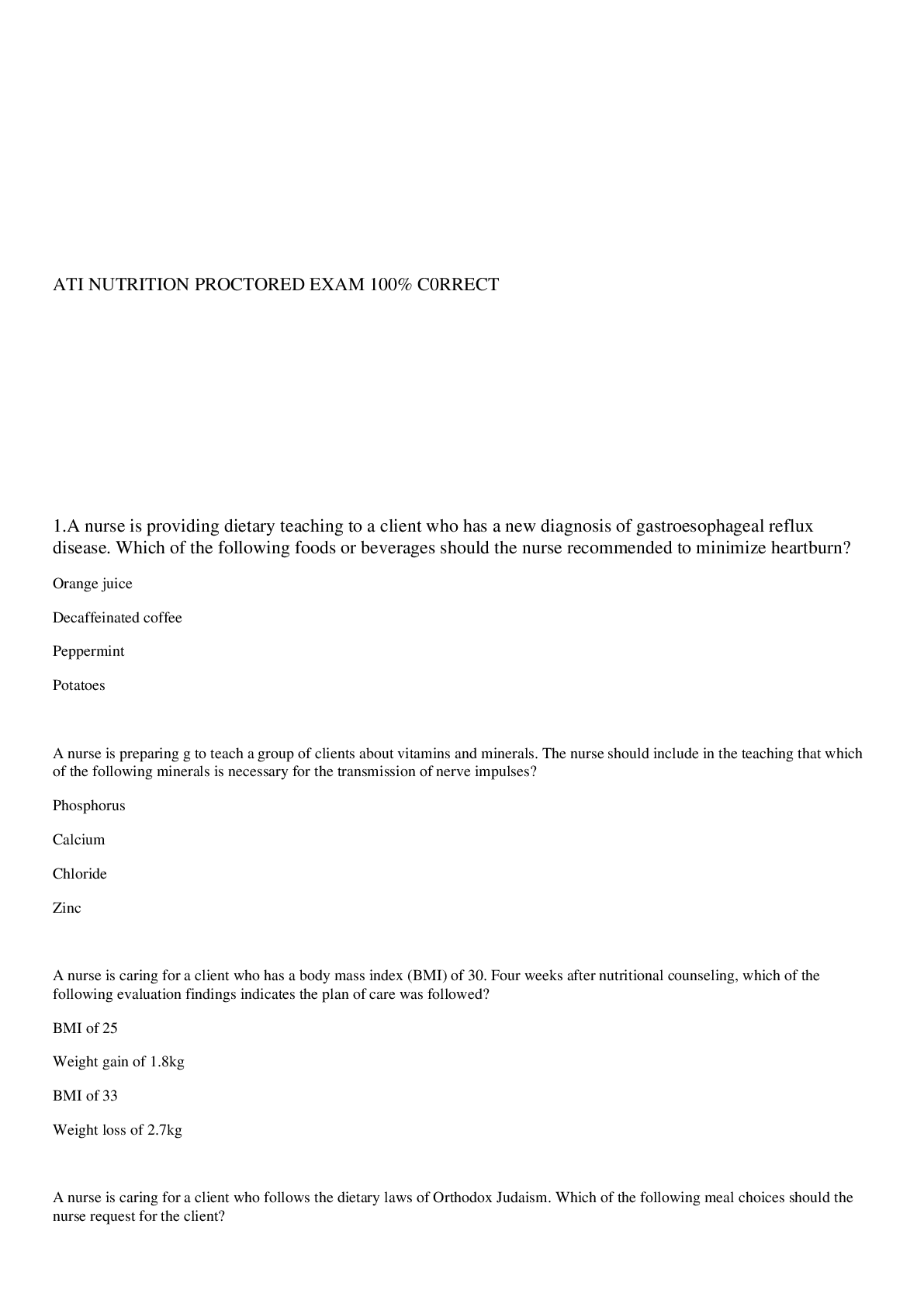
.png)
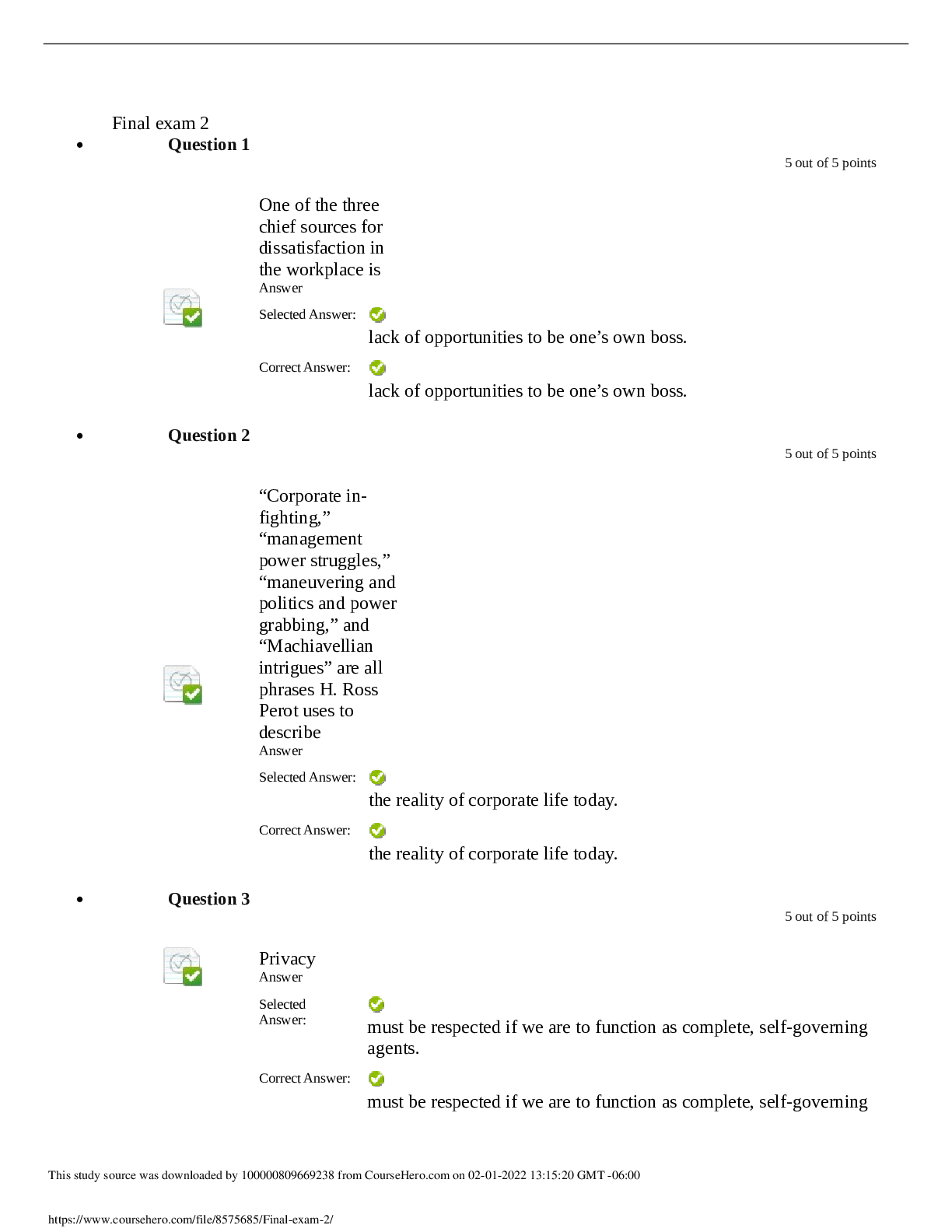
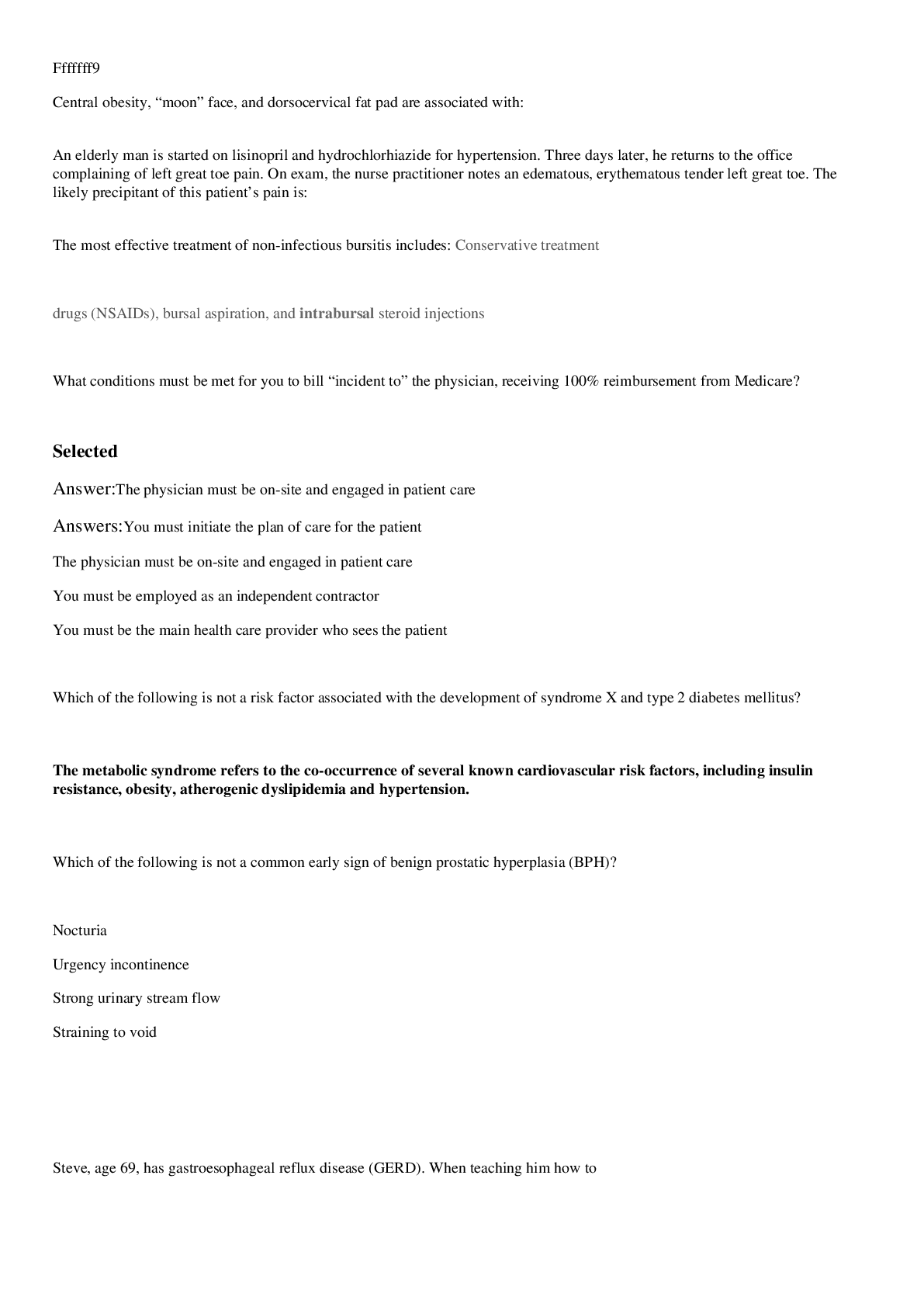
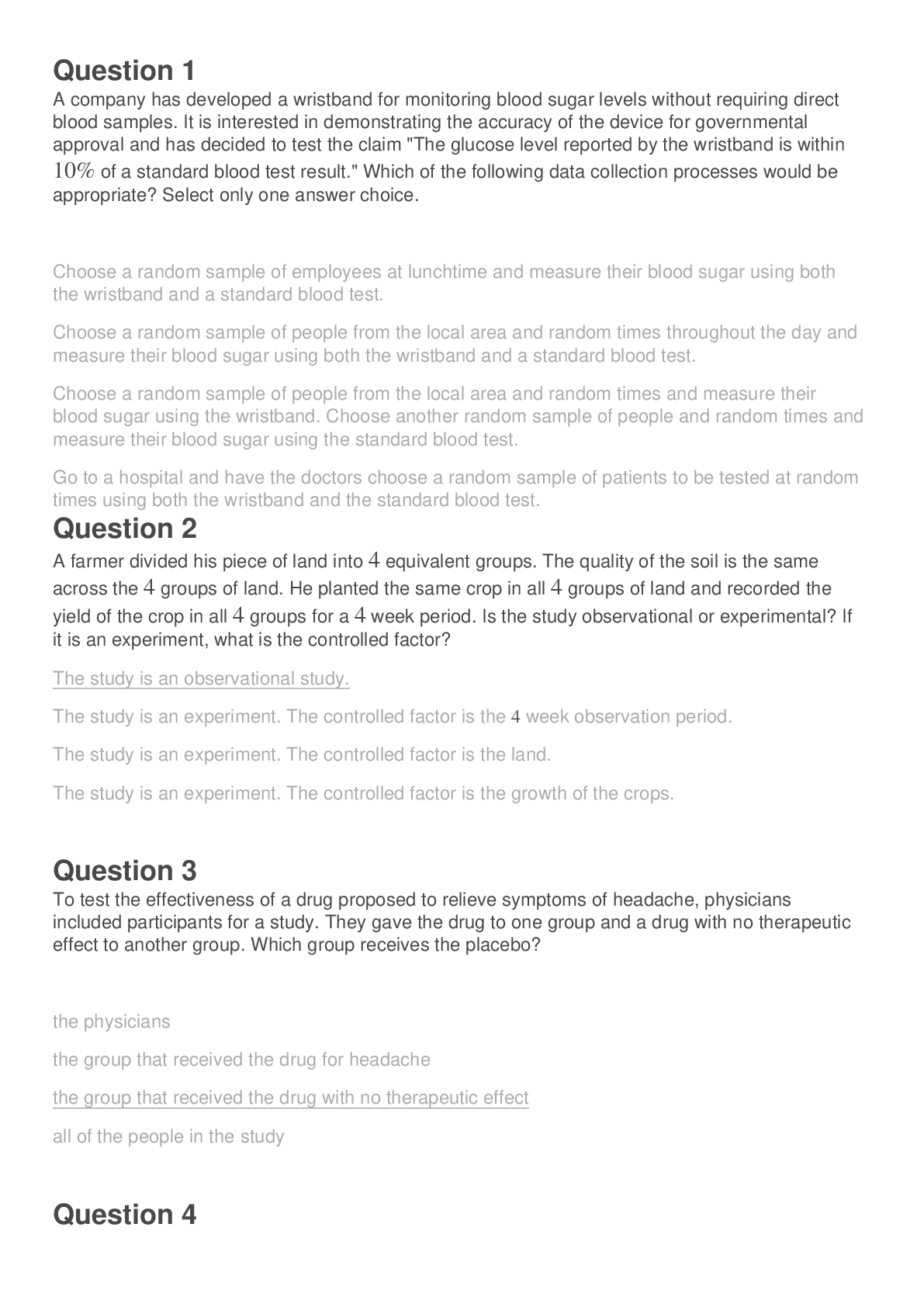
.png)




